ACETATE RENEW
Marchon Eyewear endeavors to leverage more sustainable materials in the production of our quality, premium eyewear whenever possible and available.
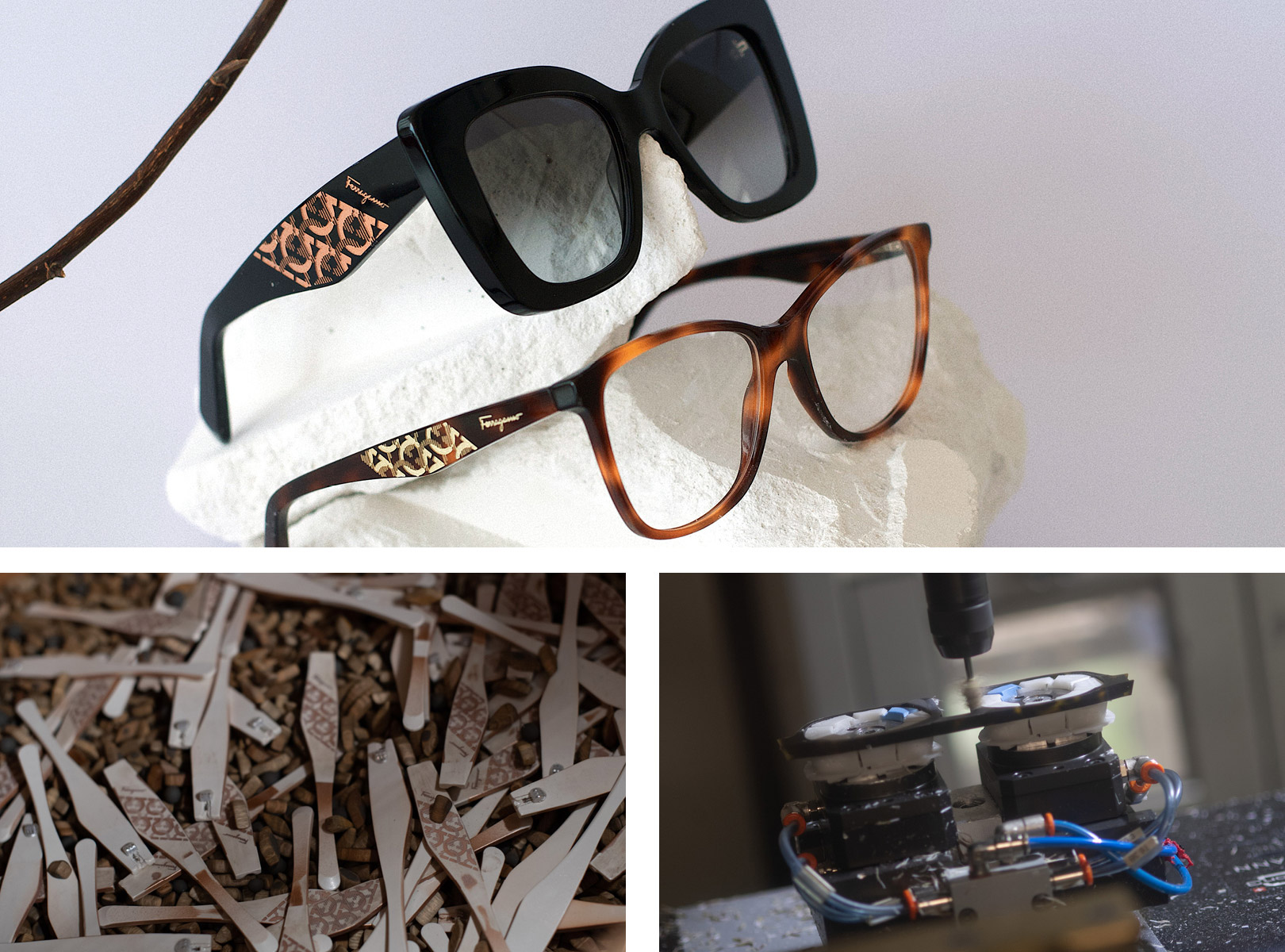
Marchon was the first eyewear company to produce and sell frames using Eastman Acetate Renew, a fully sustainable material produced via Eastman’s innovative carbon renewal technology. Acetate Renew is made from bio-based and certified* recycled materials* and provides three key benefits to Marchon Eyewear.
Sustainable material with lower carbon footprint - meeting consumers’ demand for more sustainable fashion. In addition to having approximately 40% certified recycled content and 60% bio-based content, Acetate Renew reduces greenhouse gas emissions and fossil fuel usage compared to traditional acetate.
Less landfill waste - Typically, 80% of material used in sheet acetate frame production is scrap. Instead of being landfilled, the scrap will now be returned to and recycled by Eastman into new material, creating a circular production process.
Identical Performance - Unlike other sustainable alternatives, Acetate Renew is indistinguishable from classic acetate, assuring wearers of the high quality and premium styles they expect from Marchon Eyewear.
* Via its Advanced Circular Recycling technologies, Eastman produces circular products that are certified by the International Sustainability and Carbon Certification (ISCC) by mass balance allocation.
UPCYCLED PLASTIC
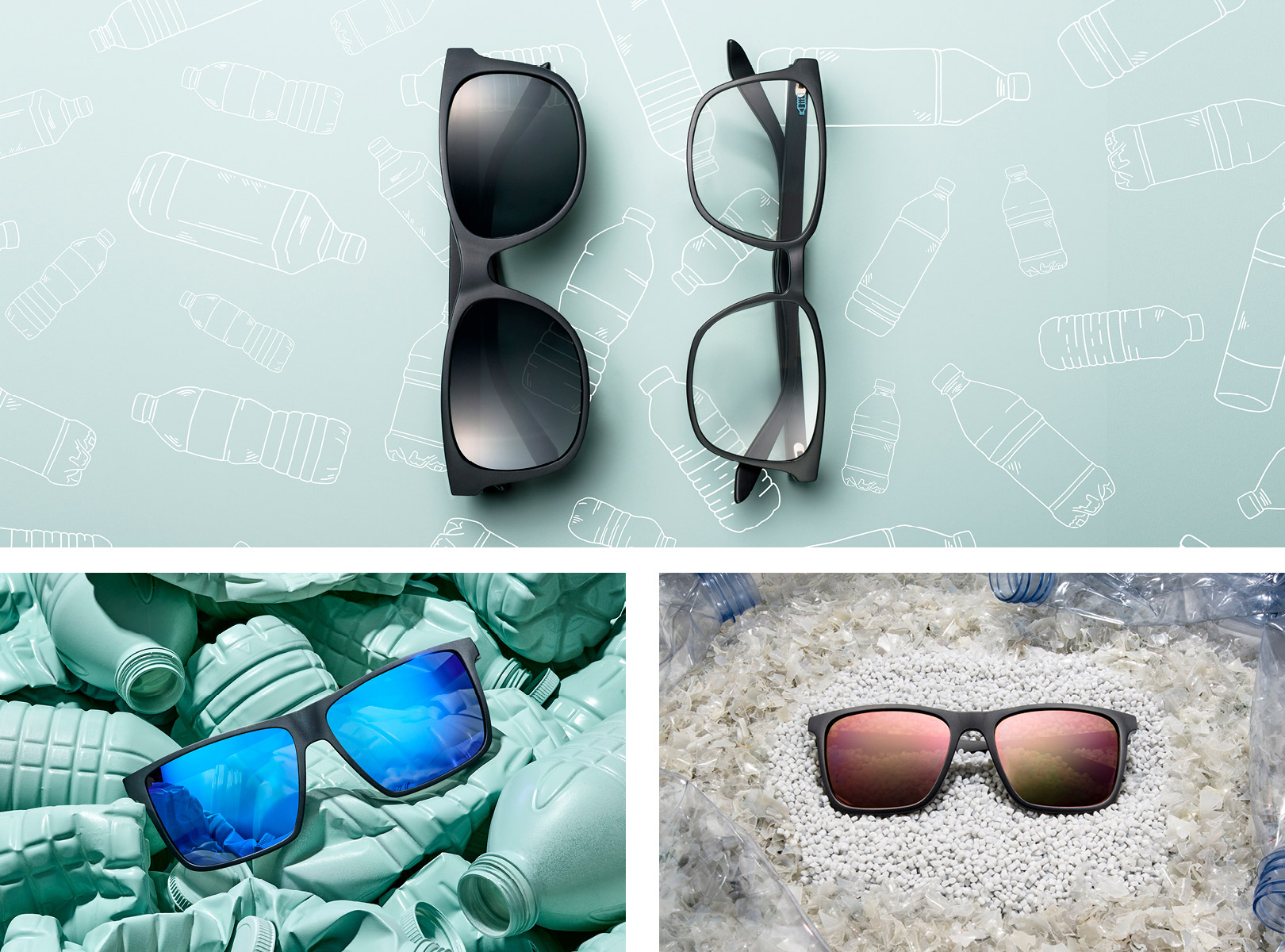
Upcycled Plastic is produced through a new method where 5 recycled plastic water bottles are repurposed, or “upcycled” into a frame. The fabrication process begins with the plastic bottles being manually separated and selected. Next, the recycled waste is washed thoroughly and cut into chips. The chips are pressed into small pellets, then melted down and injected into a frame.
PLANT-BASED RESIN
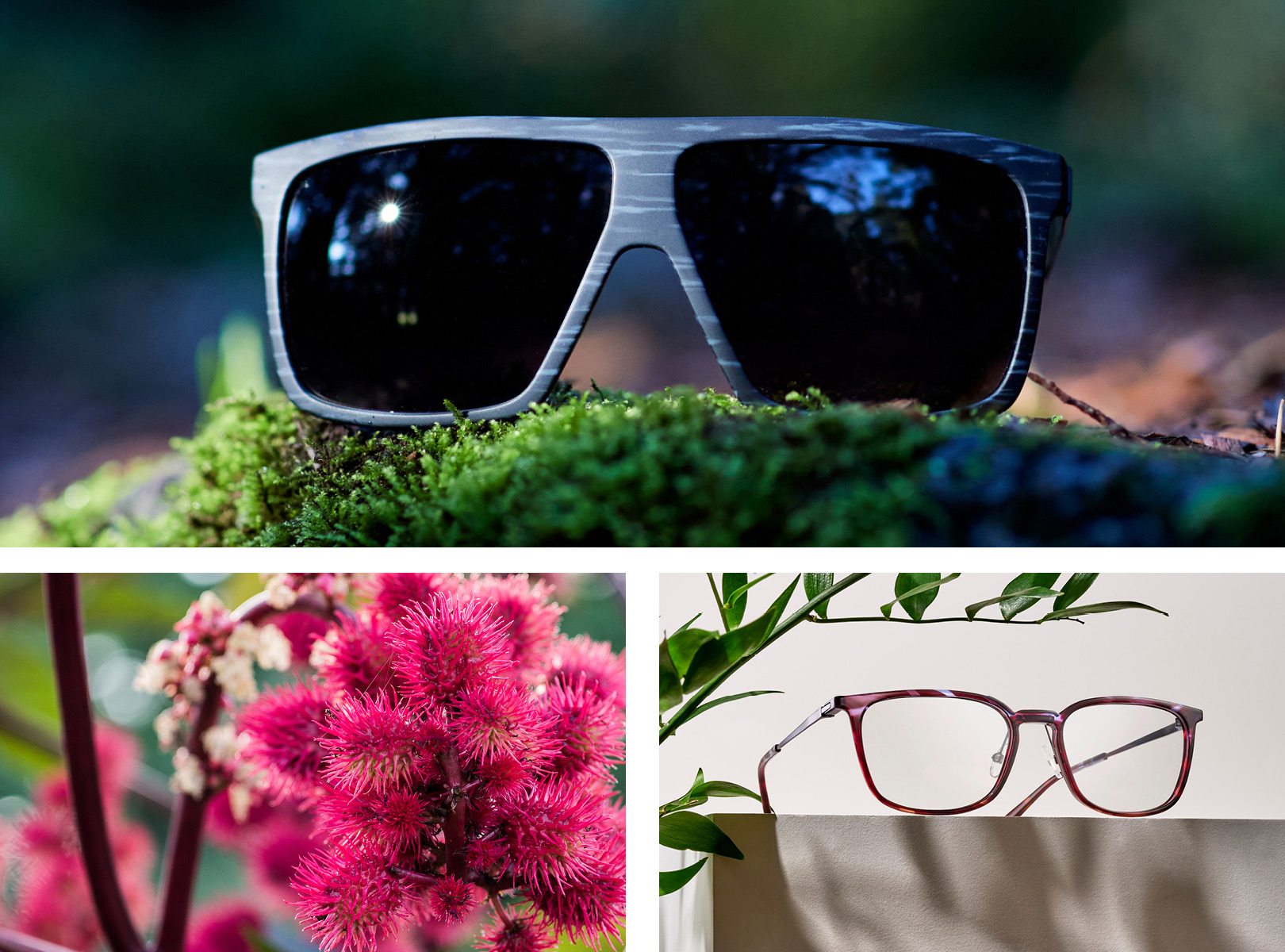
Plant-Based Resin is made from castor-bean oil, a cleaner alternative to standard petroleum-based plastics. Throughout its portfolio, Marchon is introducing lightweight and durable quality frames made with at least 45% plant-based resin. The process begins when the castor plants are harvested for their beans. Oil is pressed from the beans and turned into pellets which are melted and injected into eyewear frames.
RESPONSIBLE ACETATE
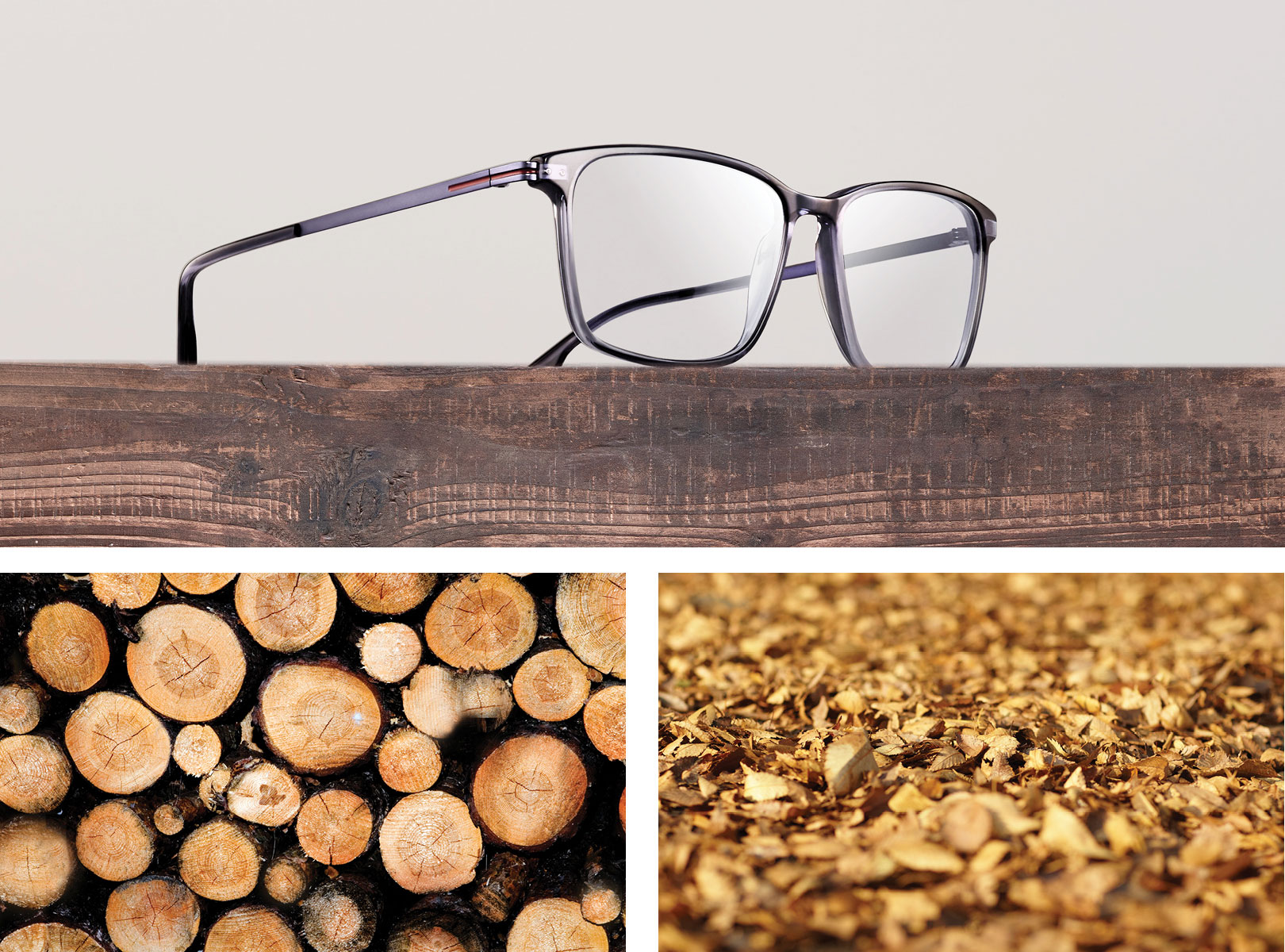
Responsible Acetate frames are made using parts of cellulose acetate, featuring over 60% Bio-Based materials, a more natural alternative to traditional plastics. With bio-based describing the natural and organic origin of material, this acetate avoids petrol-based plasticizers by combining cellulose derived from wood with a plasticizer alternative made from plant-based raw materials.
MAGNESIUM ALLOY
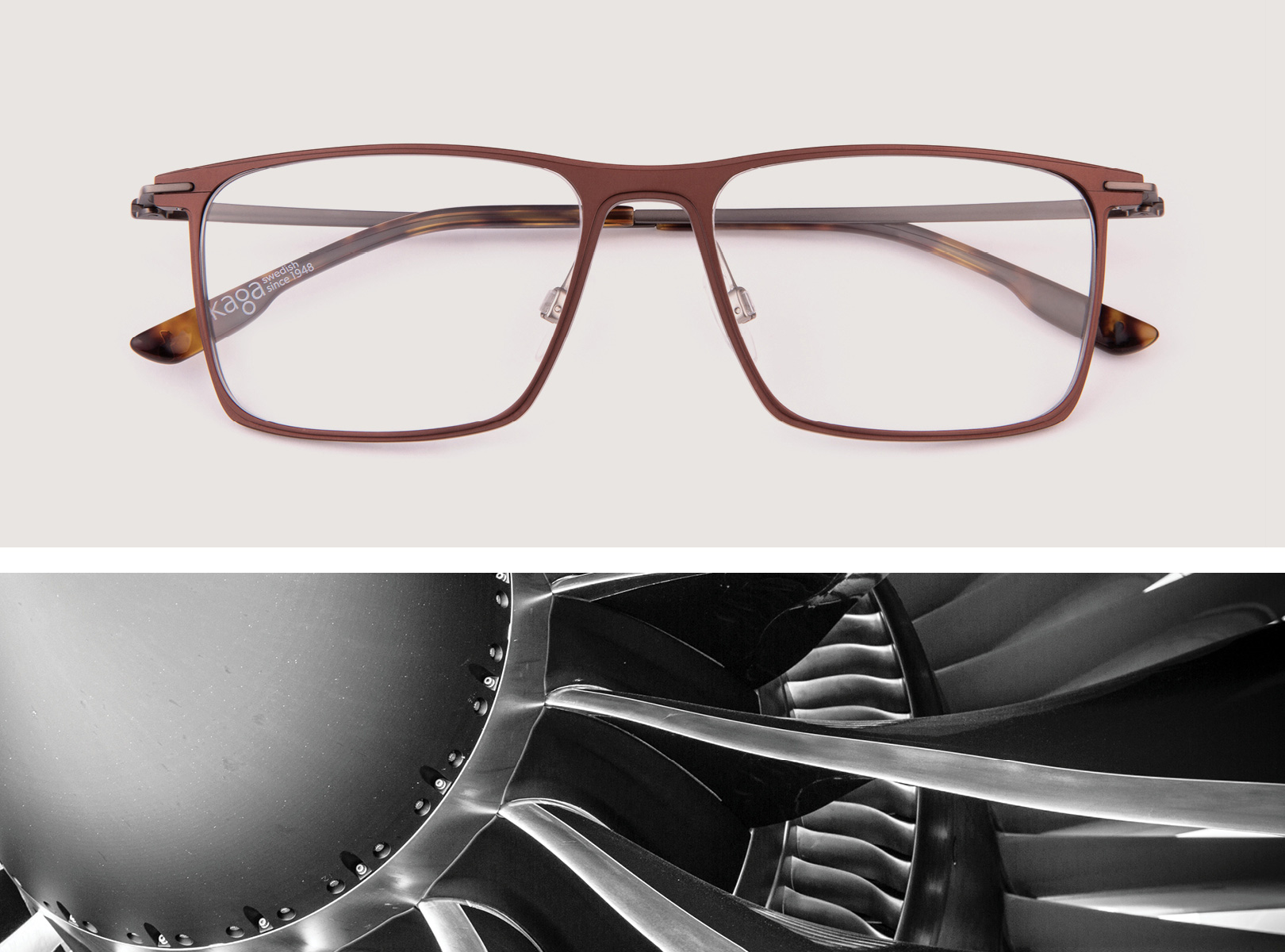
Magnesium Alloy, made of magnesium and aluminum, requires less energy to be manufactured than other metals. This material is extremely durable, lightweight, hypoallergenic and resists corrosion – making the frames featuring this material designed to last.
BIO-BASED LENSES
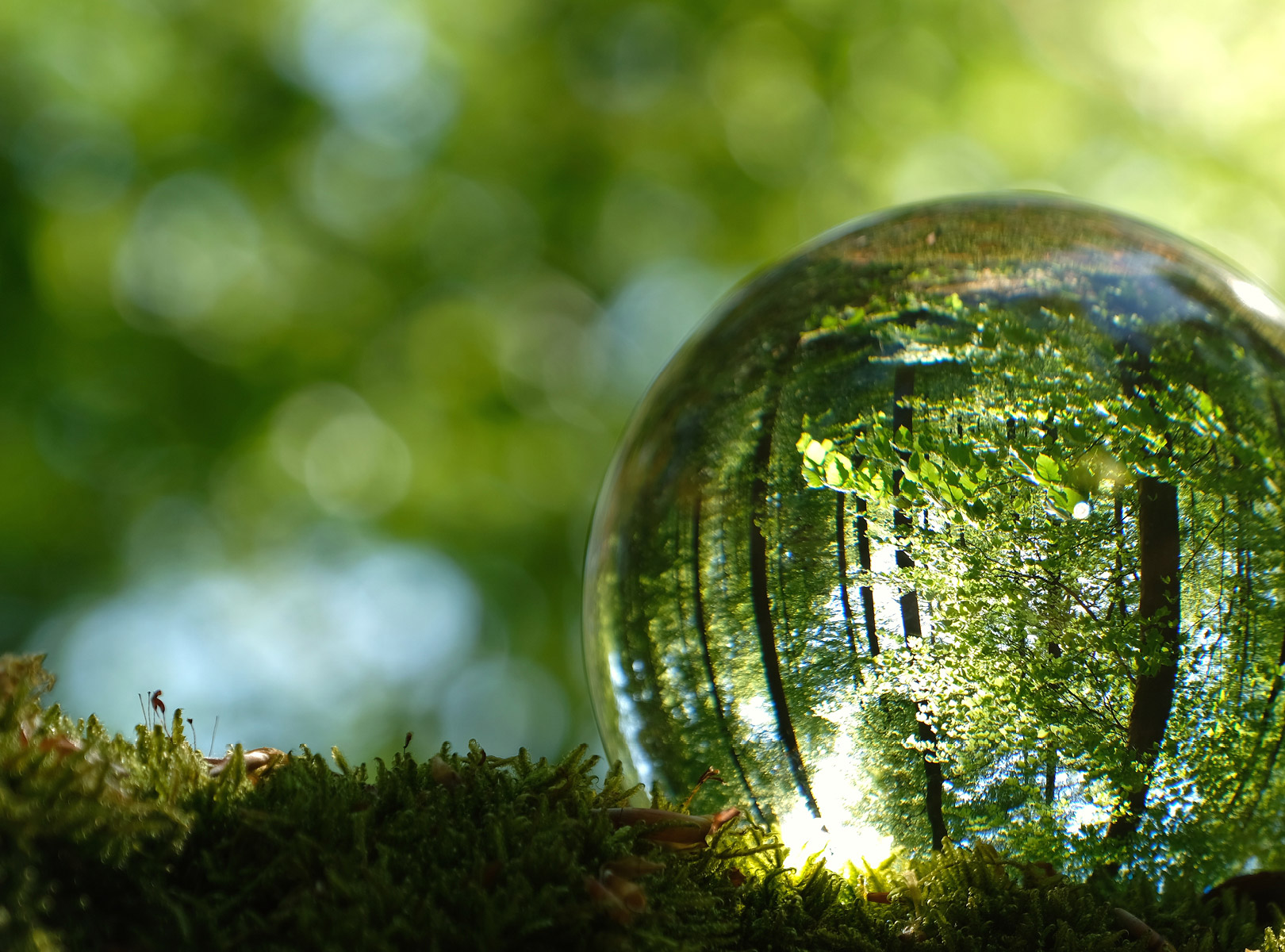
Bio-Based lenses are made from an ecological resin that is derived from castor oil, a renewable biomass. The castor oil is extracted from the castor seeds by a mechanical pressing process, then processed into a raw material for lenses. This unique material made with at least 44% biomass content is a cleaner alternative to traditional oil-based plastics. Lenses can be made as solid, gradient, mirrored, or polarized coated lenses.
ELIMINATION OF PVC
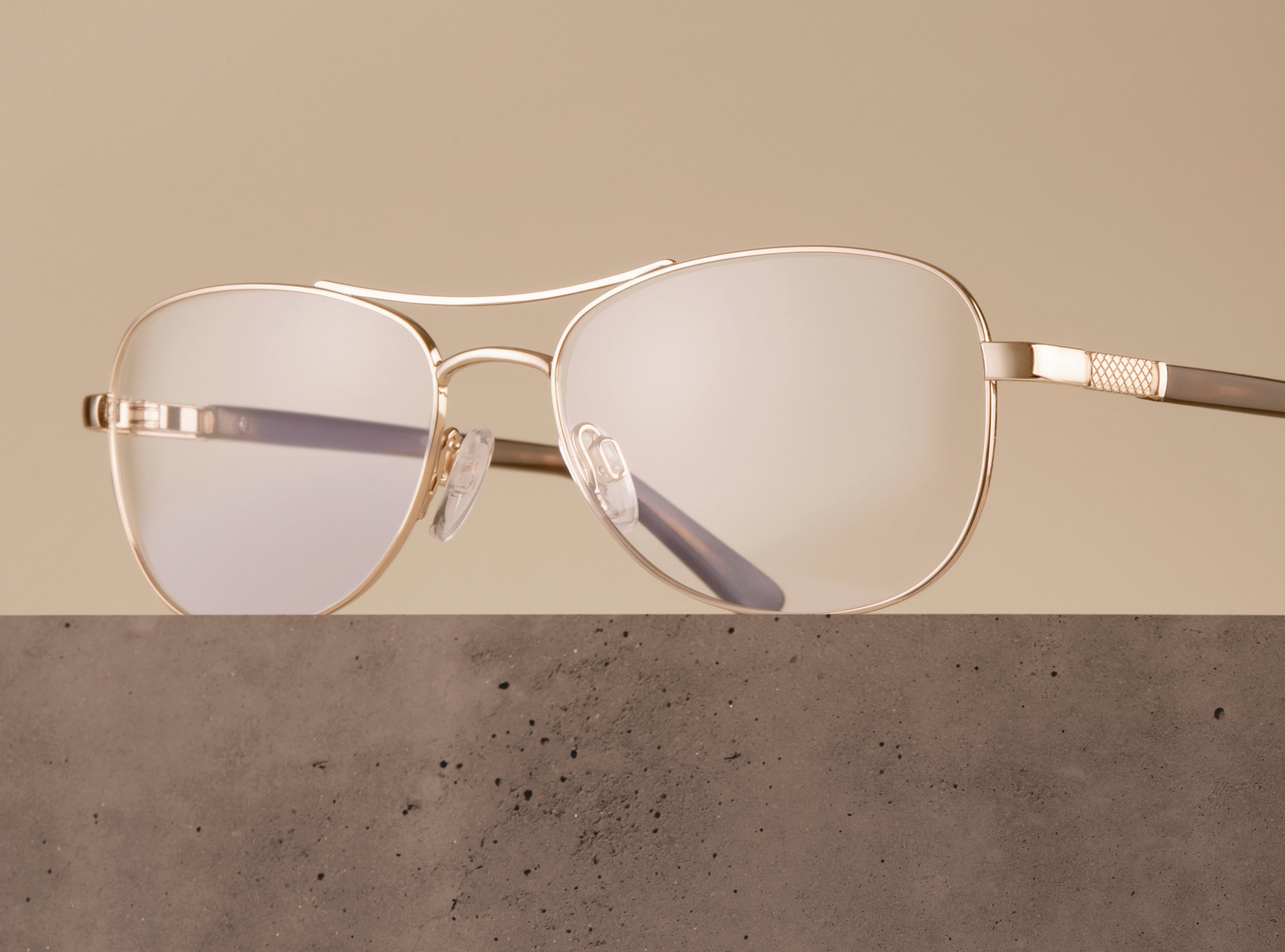
Polyvinyl Chloride, or PVC as it’s commonly known, is a synthetic material that is harmful to our health and our environment, commonly used in the eyewear industry for nose pads. Marchon Eyewear has eliminated the use of PVC in all its frames.
NICKEL-FREE TREATMENTS
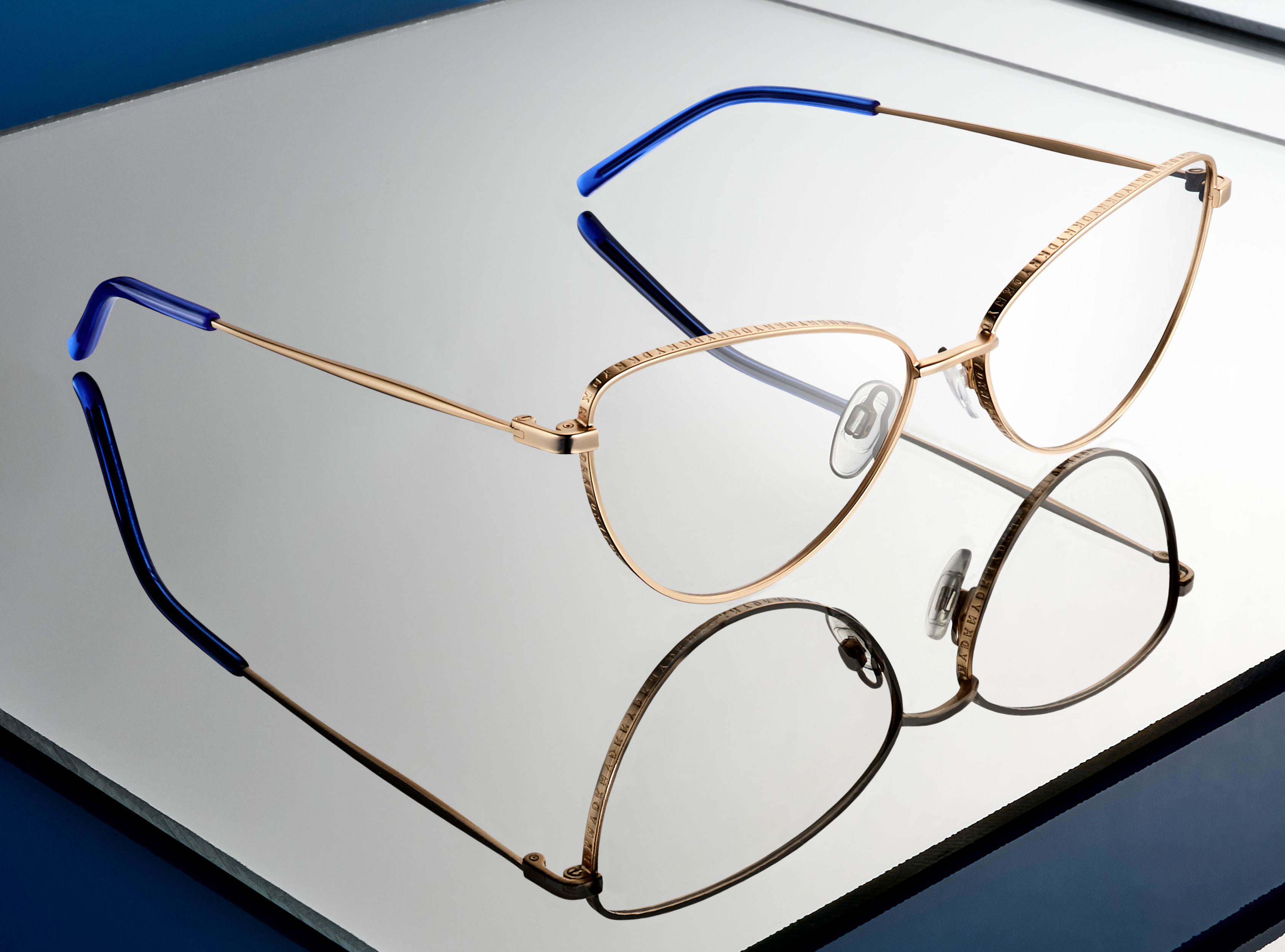
Marchon is committed to using materials that are better for the wearer’s health and the environment. Nickel-free treatments have been implemented across several brands and collections.
